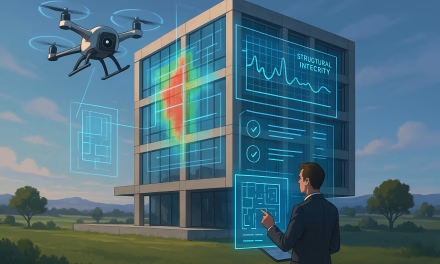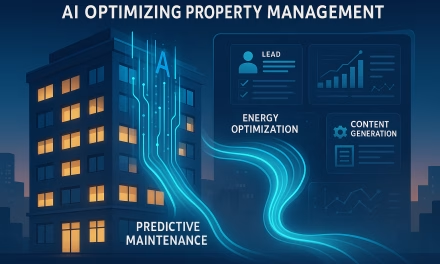June 29, 2025, underscores Artificial Intelligence’s profound impact on the real estate industry, particularly in revolutionizing property management and enhancing operational efficiency through intelligent automation and advanced analytics. AI is rapidly becoming indispensable for modern property operations.
Property management companies are implementing AI-powered inspection platforms that have significantly reduced move-out disputes by 20%. These platforms leverage computer vision technology to detect subtle issues, like early signs of mold, that human inspectors might miss, leading to substantial cost savings and improved property conditions. This proactive approach to maintenance is transforming how properties are managed.
Furthermore, AI is streamlining tenant interactions and maintenance requests. Virtual property assistants are now handling 70% of initial rental inquiries automatically, providing instant responses and freeing up human staff. AI chatbots are processing over 60% of routine maintenance requests, leading to impressive 35% reductions in after-hours maintenance calls for large property portfolios. This automation enhances tenant satisfaction and operational efficiency.
Beyond management, AI continues to advance in market trend analysis and fraud detection. Advanced AI algorithms provide clearer market insights, with automated valuation models using neural networks to process massive datasets for faster and more accurate property valuations. AI fraud detection systems analyze transactional patterns in real-time, flagging suspicious activities and providing enhanced security for high-value real estate transactions.
The developments on June 29, 2025, collectively demonstrate that AI is not just a tool for incremental improvements but a catalyst for a fundamental revolution in real estate. By automating complex processes, providing deeper insights, and enhancing security, AI is creating a smarter, more efficient, and more responsive property ecosystem for all stakeholders.





